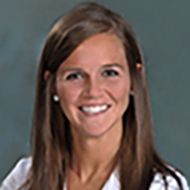New Nurse-Chaired Network Connects Oncology APPs With Peers and Resources
COA created the CAPP network to enable APPs to review important practice issues and discuss solutions among themselves.
Sarah Alexander, MSN

Sarah Alexander, MSN
It is easy for advanced practice providers (APPs) to sometimes feel like they are on their own in community cancer centers. They often don’t have the extensive information resources that physicians do.
Enter the Community Oncology Alliance (COA), which responded to this need within the APP community by creating the Advanced Practice Provider Network (CAPP Network). The network is co-chaired by nurse practitioners, and the creators hope that the tools will enable APPs to review important practice issues and discuss solutions among themselves.
APPs include oncology nurse practitioners, physician assistants, and other practice specialists, who play a large and expanding role in patient care. Thus, they need to stay up-to-date on patient support strategies, health reform initiatives, and the newest drugs and therapies, Bo Gamble, director of strategic practice initiatives with COA, told Oncology Nursing News.
According to Gamble, COA based its model for APPs on what the organization had developed previously for physician and administrator support. Additionally, explained Sarah Alexander, MSN, who co-chairs the newly formed network, the roles of APPs within a community practice are highly unique and require a separate set of information tools developed just for them. Alexander is a nurse practitioner at Lake Norman Oncology in Mooresville, North Carolina.
The CAPP Network includes a private peer-to-peer information-sharing site and listserv. What’s important, Gamble noted, is that, “We don’t allow any consultants or contractors.” Users won’t have to fear that “someone has eyes on them, or that someone would take advantage of their honesty and their openness in their communications.”
The new network already has been well received by users, partly because “they never had a voice,” Gamble said. He stressed the importance of having the system be peer-to-peer and keeping COA’s involvement “entirely secondary” and limited to technical support. In this way, APPs will be encouraged to share their experiences with one another and assume leadership roles within the APP community.
Alexander continued that the APP’s role is diverse and much adaptation is required. The duties of APPs differ greatly from those of their physician colleagues, and in some community cancer centers, an APP could even be expected to be fully independent and function without guidance or support. Providing a space for peer-to-peer interaction brings these potentially isolated workers together.
Alexander and co-chair Diana Youngs, RN, MSN, ANPc, a nurse practitioner at North Shore Hematology Oncology Associates in Long Island, New York, will host monthly webinars for members. They conducted a survey to help guide these discussions and determine what topics would benefit users most,. This data is being used to inform the agenda for the monthly webinars. Alexander hopes that these opportunities to share and exchange information will not only improve patient care, but also increase physicians’ awareness of the APP’s essential role.
The network will also provide discussions on drugs that Gamble stressed will differ from how drug conversations are currently being conducted, with an emphasis on providing value and quality in cancer care. Alexander hopes also that the conversations will improve the understanding APPs have of how the cost of drugs can affect patients.
Another goal of the network is to strengthen APP leadership roles in practices. Alexander is excited about the network’s potential to help APPs understand workplace politics and how these affect their work and the care they provide to patients. She added that interaction among CAPP Network members presents the opportunity to work through weaknesses and challenges together, and she and Youngs said that they are also looking forward to networking and learning from their fellow APPs across the country.
Click here for more information on the CAPP Network. Access is free for any advanced practice providers. Vendors and other industry representatives are not allowed access to join this private network.



